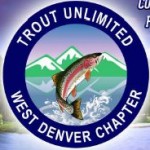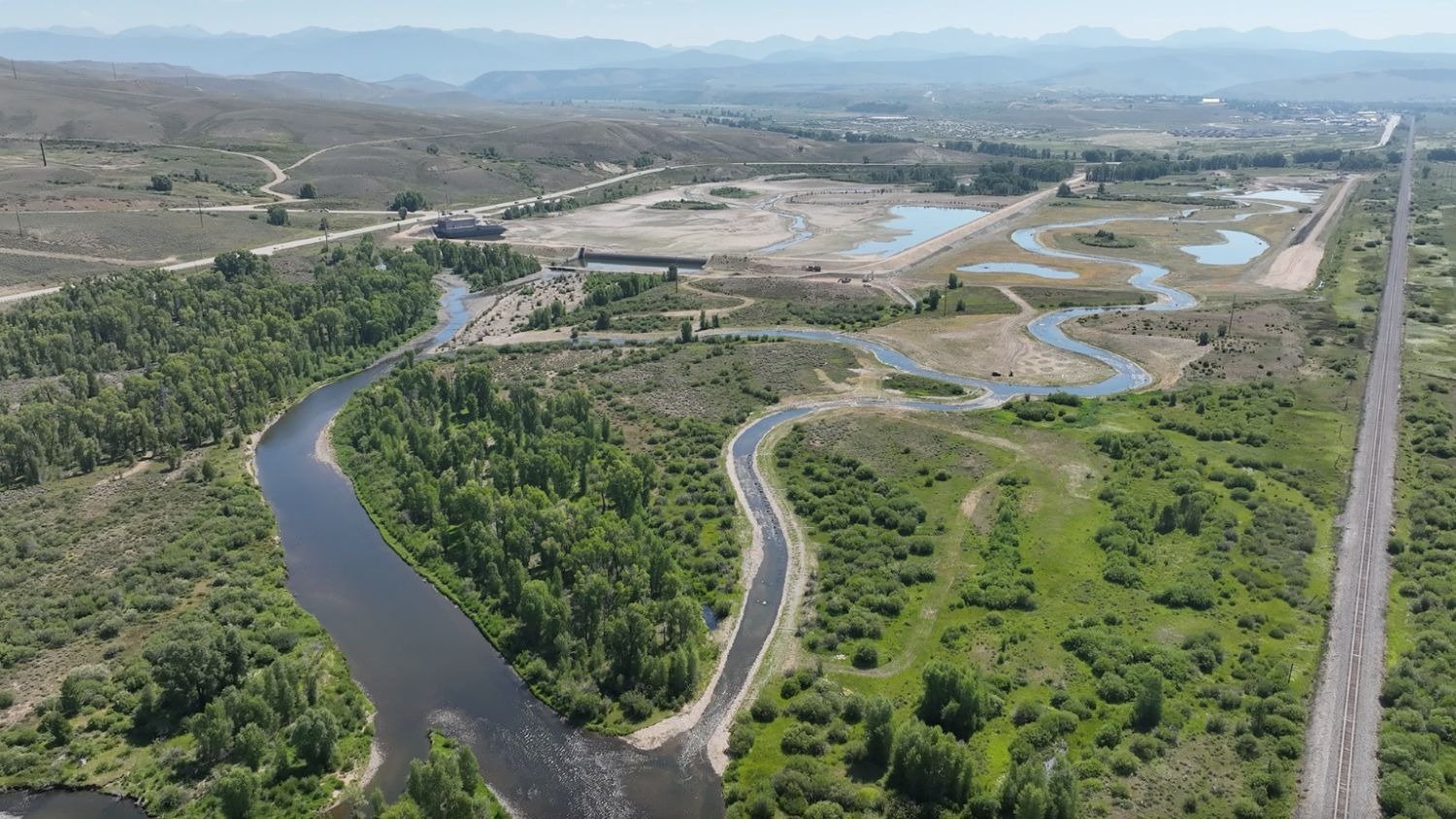 In May 2009, West Denver Trout Unlimited dedicated its Golden Mile project---a $300,000 value-added improvement of a stretch of Clear Creek running through the city of Golden that greatly enhanced cold-water fishing for anglers living in the immediate area. It was lauded at the time by leaders of the City, Jefferson County, the Colorado Division of Parks and Wildlife, and the U.S. Fish and Wildlife Service as an exemplary public-private partnership.
In May 2009, West Denver Trout Unlimited dedicated its Golden Mile project---a $300,000 value-added improvement of a stretch of Clear Creek running through the city of Golden that greatly enhanced cold-water fishing for anglers living in the immediate area. It was lauded at the time by leaders of the City, Jefferson County, the Colorado Division of Parks and Wildlife, and the U.S. Fish and Wildlife Service as an exemplary public-private partnership.
The Clear Creek Comeback
Since the completion of the project, angler use and success is up markedly for the Golden Mile stretch, and is drawing national attention as an important urban fishery.
The Chapter believed that while it was extremely important to improve trout habitat on a section of the stream that runs through the city of Golden, a corresponding value of the Golden Mile project was to increase public awareness of Clear Creek's potential as a recreational resource, and to serve as a catalyst for new partnerships and future improvements.
WDTU also - correctly - envisioned successful completion of the Golden Mile as a means for angler conservation interests to secure a place at the table when future decisions were made that might impact Clear Creek.
Success Spawns Success
There has been a remarkable increase in trout habitat improvements on Clear Creek since the dedication of the Golden Mile, including a “Fishing is Fun” project just upstream of Idaho Springs, another habitat remediation project in downtown Idaho Springs, and plans for a large habitat enhancement effort as part of the CDOT's Highway 119 improvements below the town of Black Hawk. Although it may be a stretch to attribute these subsequent endeavors to the success of the Golden Mile, the chapter is encouraged by the levels of commitment and cooperation among private and public entities.
Extending Their Reach
The success of the Golden Mile project encouraged WDTU to plan and execute a second, major Clear Creek restoration effort—the Canyon R each project—west of Golden. This project, completed in September and dedicated in October, 2011, breaks new ground in its special attention to people with restricted ability to access and appreciate what the river has to offer.
each project—west of Golden. This project, completed in September and dedicated in October, 2011, breaks new ground in its special attention to people with restricted ability to access and appreciate what the river has to offer.
The restoration was done in three sections, chosen especially to provide safe access to and from both the highway and river for young families and marginally mobile anglers. The downstream section is located at Mayhem Gulch, near the Highway 6 Mile Marker 262; the middle section is upstream at a large unpaved parking area near Mile Marker 261; and, the upper section is at a paved parking area further upstream near Mile Marker 260 (the top of the project is a short distance below the junction of Highways 6 and 119).
 Classic structures like cross vanes, J hooks, and boulder clusters provide winter habitat, bank stabilization, feeding lanes, and improved access.
Classic structures like cross vanes, J hooks, and boulder clusters provide winter habitat, bank stabilization, feeding lanes, and improved access.
Two innovative toe-wood structures provide large organic masses to encourage riparian growth in extremely rocky terrain.
Major contributors to the Canyon Reach project include Jefferson County, the Colorado Parks and Wildlife’s “Fishing is Fun” program, the Alfred Frei and Sons quarry, the Colorado Water Conservation Board, Henderson Mine, the Trask Family Foundation, and a Colorado Trout Unlimited Gomo Grant (named for former Colorado TU staffer Leo Gomolchak). Capital outlay to date is approximately $300,000, exclusive of both past and future volunteer hours and planned signage.
The reality is that Clear Creek is becoming a respectable urban fishery. In this economic climate, with high gas prices, high unemployment and people who may be working extra hours or holding down two jobs to make ends meet, many people simply don’t have the time or the wherewithal to travel long distances to fish. They’re looking for fishing opportunities in close proximity to where they live. And, if they live along the northern Front Range, those opportunities may reside in Clear Creek.
West Denver believes there’s value in providing an improved, accessible fishery to a very large urban demographic group. And, the Chapter is hopeful that the success of the Canyon Reach project serves as a rallying point for community pride as well as a testament to Clear Creek's potential that inspires further efforts on the river.














